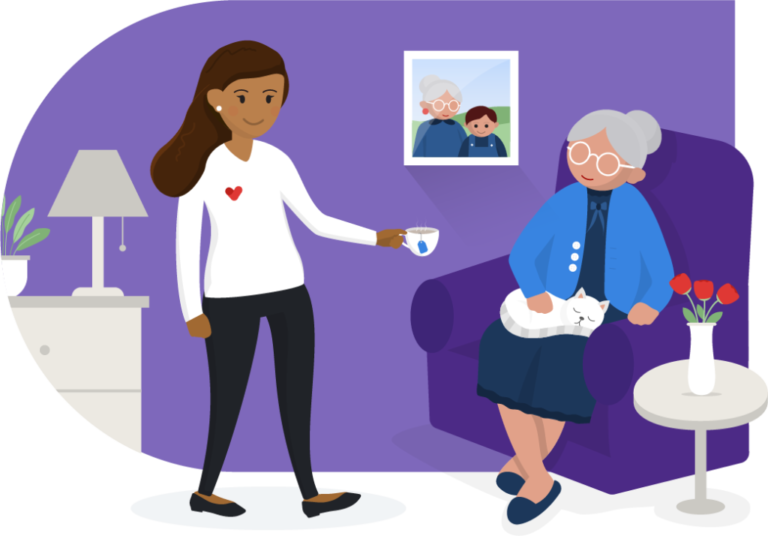
Caring for an aging loved one is a journey filled with love, patience, and dedication. However, when memory-related issues...

When a loved one is diagnosed with Alzheimer’s, it’s time to focus on the positive.
Take every day as it comes and learn how to communicate in the best way possible, with your loved one and with family members.
What is the best way to continue to communicate with your loved one as Alzheimer’s progresses?
First, remember that it will possible to continue to have meaningful conversations and connections with your loved one regardless of this diagnosis.
1. Do not depersonalize your loved one.
Resist the urge to believe that your loved ones identity is being erased as the disease progresses. Memory and identity are very intricate, and scientists are still trying to understand their complexities.
Even a person with severe dementia will retain core features of their personality, beliefs, likes and dislikes. Continue to focus on those consistencies and continually help your loved one connect and reconnect with them.
2. Do not attempt to correct inaccuracies in conversation.
Understand that inaccurate statements from someone with dementia are a normal part of their life. The more common forms of dementia effect short term memory, not necessarily long term memory.
Live in your loved one’s world in the right now. Be present with them in conversation, even if means repeating the same answer to a question multiple times.
This can be frustrating, but to attempt to correct your loved one with dementia will frustrate and worry them, potentially hastening their mental decline.
3. Keep the brain engaged.
Research has shown that new connections in the brain can continue to be made, even after a diagnosis of Alzheimer’s or another form of dementia. Keep your loved as stimulated as possible, without overdoing it so they become anxious or withdrawn.
Memory care communities can not only provide a safe environment for our seniors, but a stimulating one with brain activities focused on slowing the rate of dementias.
2. Minimize distractions in the environment.
A person with dementia may become easily agitated with too much outside stimuli. It’s common, especially in later stages of the disease, for a person with dementia to prefer a tranquil, quiet, familiar setting.
3. Do not infantilize the person with dementia.
Remember that you are speaking to an adult who has had extensive life experiences. That is true regardless of that person’s neurological state.
4. Speak and behave in a calm fashion.
Those with dementia are prone to emotional swings with bursts of confusion, anger and possibly aggression. When you are calm and friendly, it will be easier for your loved one to feel calm as well. If you seem distraught, your loved one may mirror your emotion, becoming upset as well.
6. Keep the conversation focused on one topic.
As we get older it’s difficult to maintain focus on multiple threads of thought, even if we haven’t been diagnosed with dementia. Imagine how difficult that focus is becoming for your loved one with dementia. Do not jump between topics in a conversation. Speak slowly and clearly and keep everything focused on one topic at a time.
7. Do not respond to aggression with more aggression.
You are in a very difficult situation that may be made worse by periods of aggression from a loved one with dementia. This may cause you to feel angry, frustrated, hurt, or panicked, but try and rein in your emotions. If you react aggressively, you will simply agitate your elder more. It’s important to remember that the behavior is not who your loved one is, but a reaction to how they perceive their situation at that moment in time.
Step away, physically and/or mentally, and evaluate objectively what might be causing the aggression.
Change the environment and tone of the current situation by focusing on something different and see if things calm down. If you fear for your safety, or your loved one’s safety, it is wise to seek professional help or law enforcement’s help. Keep a log of what is causing the outbursts, so you can if possible, avoid those situation in the future.
When you adjust your communication strategies, you will not only continue to have meaningful interactions with your loved one who has dementia, you will also maintain the emotional bond you’ve always had.

Caring for an aging loved one is a journey filled with love, patience, and dedication. However, when memory-related issues...

In 2025, the cost of in-home care continues to be a critical factor for families seeking senior caregiving services....

As our loved ones age, their care needs often change, and navigating the world of senior care facilities can...

As more and more seniors begin to require care outside of the home, a question that is often asked...